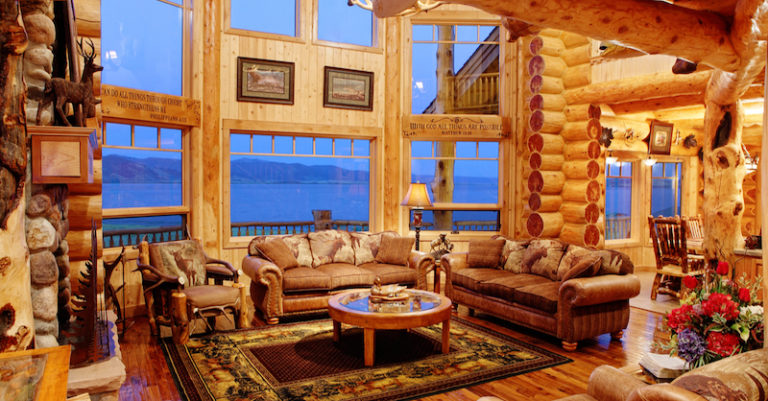
Are you planning a writing retreat for you or your writing group?
Writing retreats offer writers time away from the everyday hustle and bustle of family and work schedules.
They allow you the time and place to focus solely on your creative process without any distractions or excuses that cause you to lose the necessary focus needed to complete a novel or screenplay.
Coffee shops, libraries, and your very own writing holes within your home are great, but nothing stirs the creative soul like a writing retreat.
Whether you are planning one for yourself, you and your writing partner, or a group of writing peers, here are seven recommended essentials you need to remember when planning your next writing retreat.
1. Good Timing

Time is everything when it comes to a writing retreat.
One day isn't enough. And too much time can take away from the necessary pressure of an impending deadline (see below).
You need to block out enough time to make the trip worthwhile. A single day isn't going to offer much productiveness.
Try to find a long weekend at the very least. If you can go the distance and take a whole week, even better. But beware of taking too much time away because it will feel more like a vacation than a writing retreat.
2. A Peaceful and Beautiful Location
A writing retreat is all about the escape from your daily grind, but it's even more important to focus on where you're going to escape to.
You need to feel removed from your usual setting — the best trigger that flips your inner creative switch to writing mode.
While it would be great to visit New York City or Las Vegas, the best places to escape to are those that offer a more serene setting.
It could be a beautiful lake house...

It could be a mountain cabin with breathtaking views...

It could be a beach paradise house or resort...

Whatever you prefer or can afford, find a beautiful and peaceful location that can ease your mind and engage your imagination.
If you're writing a story set within a specific outdoor setting, focus on that as you search for your location. There's nothing better than feeling as if you're in the world that your characters are inhabiting, so do your best to replicate that world if necessary.
Airbnb is a great tool to find places, but Vrbo specializes in the types of beach houses, condos, and cabins that we're talking about.
3. Your Own Room
If you're planning a writing retreat for just yourself, no problem. But it's tempting to want to cut costs for a group by sharing rooms.
If your budget can manage it, try to find locations that offer writers their own space. Early mornings, midday rests, and late-night crams are essential elements of a perfect writing retreat.

You don't want to have to worry about a bunkmate or roommate.
You don't want to have to walk on eggshells or worry about the light or sound emanating from your laptop.
Shared rooms can feel more like barracks or social events than a writing retreat. You'll feel more comfortable in your own space.
Learn the best way to structure your screenplay with this free guide.
4. Additional Places to Escape To
Anyone can lock themselves in a room to write. The writing retreat must also offer places to escape to during your creative process.
Writing isn't just about typing. Most of your writing occurs within your mind's eye through visualization. How can you write description for the reader without being able to see the visuals yourself first?
The typing is just the translation of the story, characters, and events that you imagine. Visualization is where the real writing is. And to do that, you need to let your mind wander.
Go hiking on a trail.

Take a walk on the beach.

Find a beautiful place to sit.

When you're choosing your location, be mindful of what else lies beyond the confines of wherever you're actually staying.
5. Food, Wine, and Spirits
Writing retreats are about comfort as well. In your normal daily grind, you may not have to time to enjoy great comfort food or partake in relaxing wine and spirits.

Since you're trying to detach from your regular life, find a place that has plenty of options for food, wine, and spirits. Cheat on your diet. Have some sweets. Have a drink or two (or three). Let loose.
You'll find that your creative process will key in on this as well, and your body will release the necessary that drives your imagination.
6. Inspiration
Not only are you inspired by the beautiful and peaceful surroundings of a writing retreat, but also by outside sources that you can seek out or bring along with you — books, movies, and TV episodes.
You plant those seeds into your creative mind, and you water them by watching reading books and watching movies and TV series episodes. It's not about stealing and ripping off ideas.
It’s about inspiration.
It’s about finding a particular tone for a moment or story arc or action sequence or character.

It’s about jump-starting that imagination of yours.
You may not even take any direct inspiration from the book, film, or episode beyond just the excitement of being a reader or audience member and wanting to give your readers or your audience the same experience.

And our minds are incredible tools, literally doing the work for us.
You could be watching a movie one day and then as you’re sleeping, your mind is looking for a context to place that memory in.
And hey, you’re a writer developing and writing stories, where do you think the creative mind will apply that memory to?
Water those seeds by watching reading books or watching movies and TV episodes that are similar to what you are trying to develop and write.
While some may think that reading books or watching movies and TV defeat the purpose of a writing retreat, remember that most writing takes place before you type one single word.
Make time for some reading and viewing — it'll help feed your creative mind.
7. Goal, Plan, Action
"A dream written down with a date becomes a GOAL. A goal broken down into steps becomes a PLAN. A plan backed by ACTION makes your dreams come true." — Greg Reid
Planning a writing retreat represents you creating a goal. You've taken this dream of being a writer, and you've changed it into a goal by setting aside a specific time and place to begin the steps of writing.
Those steps represent your plan. And a plan backed by action is what can make your dreams of becoming a writer come true.
A writing retreat is an escape, but it's not a vacation. You're there to work. You're there to break down a goal into steps that become a plan. And then you take action by writing.
All of these recommended essentials for a perfect writing retreat exist so that you can take more action than you can in your normal daily, weekly, and monthly grind.
Thus, it's essential that you go into your writing retreat with a goal, plan, followed by action.
Maybe you're going to write the rest of your book. Maybe you're going to finish your screenplay. Maybe you're going on this writing retreat to start the creative process.
Plan each day and night. Give yourself enough time to write for a bit, and then take a break to escape on an adventure or enjoy some food, wine, and spirits. And always end each writing session at a starting point — in the middle of a chapter, paragraph, or scene. That will leave you chomping at the bit to write again.
Make a goal. Have a plan. Take action by writing.
Relax, enjoy, and just keep writing.

Find a good block of time, a peaceful location, and personal space for your writing retreat.
Escape out to nearby locations and let your creative mind wander.
Enjoy the comforts of food, wine, and spirits that you usually may not get to enjoy — and let the endorphins engage your imagination.
Read books and watch movies and TV episodes to water the seeds of your stories, characters, and settings.
And live up to the challenge of setting a goal, taking the necessary steps to create a plan to meet that goal, and taking the action you need to take by engaging that imagination and translating everything from fingers to keys, and onto the page.
Ken Miyamoto has worked in the film industry for nearly two decades, most notably as a studio liaison for Sony Studios and then as a script reader and story analyst for Sony Pictures.
He has many studio meetings under his belt as a produced screenwriter, meeting with the likes of Sony, Dreamworks, Universal, Disney, Warner Brothers, as well as many production and management companies. He has had a previous development deal with Lionsgate, as well as multiple writing assignments, including the produced miniseries Blackout, starring Anne Heche, Sean Patrick Flanery, Billy Zane, James Brolin, Haylie Duff, Brian Bloom, Eric La Salle, and Bruce Boxleitner. Follow Ken on Twitter @KenMovies
For all the latest ScreenCraft news and updates, follow us on Twitter, Facebook, and Instagram.
Tags
Get Our Screenwriting Newsletter!
Get weekly writing inspiration delivered to your inbox - including industry news, popular articles, and more!



























